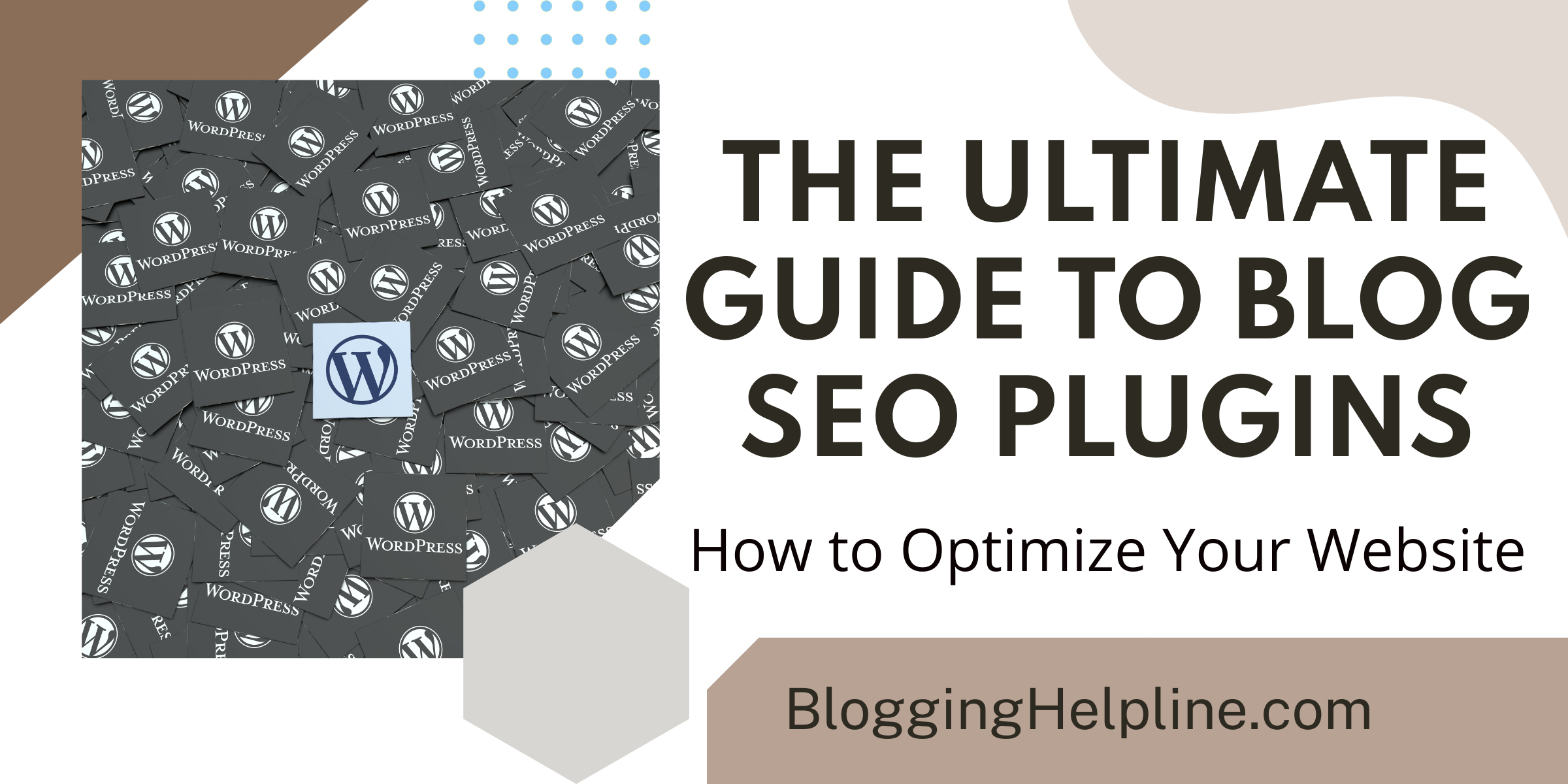Table of Contents
- What Are Blog SEO Plugins?
- Why Use Blog SEO Plugins?
- How to Choose the Right Blog SEO Plugins
- The Best Blog SEO Plugins
- How to Use Blog SEO Plugins Effectively
- Conclusion
Blog SEO Plugins: The Ultimate Guide
Are you looking to optimize your blog’s search engine rankings? Look no further than blog SEO plugins. These handy tools can help improve your website’s visibility and attract more traffic.
In this guide, we’ll explore everything you need to know about blog SEO plugins, including which ones to use and how to use them effectively.
What Are Blog SEO Plugins?
Blog SEO plugins are software programs you can install on your website to help optimize it for search engines. These plugins can help you identify and fix issues that may be preventing your site from achieving top rankings, such as broken links, slow loading times, and poor keyword targeting.
Why Use Blog SEO Plugins?
Using blog SEO plugins can have a number of benefits, including:
- Improved search engine rankings: By fixing technical issues and ensuring your website is optimized for search engines, you can increase your chances of ranking higher in search engine results pages (SERPs).
- Increased visibility: Higher rankings mean more visibility for your website, which can lead to increased traffic and more opportunities for conversions.
- Better user experience: By fixing issues such as slow loading times and broken links, you can improve the overall experience for your visitors, which can lead to higher engagement and lower bounce rates.
How to Choose the Right Blog SEO Plugins
When choosing blog SEO plugins, it’s important to consider which ones will best suit your needs. Here are some factors to consider:
Functionality
Different SEO plugins offer different features, so it’s important to choose one that offers the functionality you need. For example, if you are primarily concerned with keyword optimization, you may want to choose a plugin that specializes in this area.
Compatibility
Before installing a plugin, it’s important to ensure it is compatible with your blogging platform. Most SEO plugins are compatible with WordPress, but be sure to double-check before installing.
User-Friendliness
Some SEO plugins can be difficult to use or require a steep learning curve. Look for a plugin that is easy to use and comes with clear documentation or support resources.
Reviews and Ratings
Finally, be sure to read reviews and ratings from other users before choosing a plugin. This can help you gauge how effective and reliable a plugin is.
The Best Blog SEO Plugins
Now that you know what to look for in a blog SEO plugin, let’s explore some of the best options on the market.
Yoast SEO
Yoast SEO is one of the most popular SEO plugins available, with over five million active installations. This plugin offers a range of features, including:
- Keyword optimization: Yoast SEO offers a built-in keyword tool that can help you identify and optimize for target keywords.
- Content analysis: The plugin evaluates your blog posts and offers suggestions for improving readability and SEO.
- XML sitemaps: Yoast SEO generates XML sitemaps, making it easier for search engines to crawl and index your website.
All in One SEO Pack
All in One SEO Pack is another popular option, with over two million active installations. This plugin offers features such as:
- Keyword optimization: Like Yoast SEO, All in One SEO Pack offers a built-in keyword tool.
- Title and meta description optimization: You can customize your title and meta descriptions for each post and page to improve click-through rates.
- Built-in API: Developers can use the plugin’s API to modify and extend its functionality.
The SEO Framework
The SEO Framework is a lightweight and user-friendly SEO plugin that offers a range of features, including:
- Keyword optimization: The plugin offers a built-in keyword research tool.
- Content analysis: The plugin evaluates your blog posts and offers suggestions for improving SEO and readability.
- Schema markup: The SEO Framework automatically adds schema markup to your website, making it easier for search engines to understand its content.
How to Use Blog SEO Plugins Effectively
Now that you’ve chosen an SEO plugin, it’s important to use it effectively. Here are some tips:
Conduct Keyword Research
Before optimizing your blog for search engines, it’s important to conduct keyword research. This means identifying the keywords and phrases your target audience is searching for and incorporating them into your content and metadata.
Optimize Your Content
Your blog posts should be optimized for both readers and search engines. This means writing high-quality, engaging content that incorporates your target keywords and is formatted for easy scanning.
Optimize Your Metadata
Your blog’s metadata, including titles and descriptions, should also be optimized for search engines. Be sure to include your target keywords and make your metadata compelling and click-worthy to encourage clicks.
Monitor Your Progress
Finally, it’s important to monitor your progress and make adjustments as necessary. Use your SEO plugin’s analytics tools to track your rankings and make changes to your approach as needed.
Conclusion
Blog SEO plugins can be a powerful tool for improving your website’s visibility and attracting more traffic. By choosing the right plugin and using it effectively, you can increase your chances of ranking higher in search engine results pages and achieve greater success with your blog.
